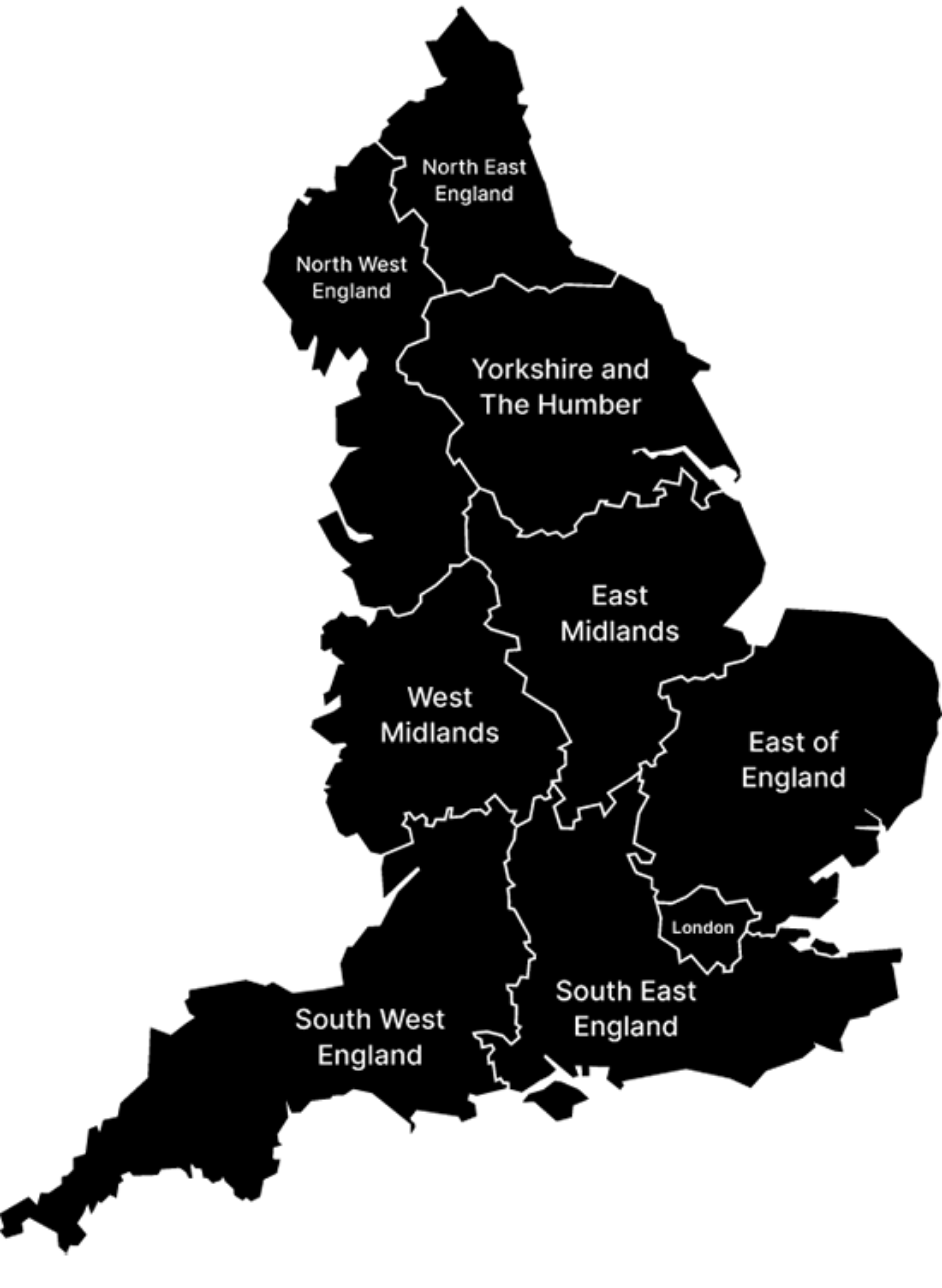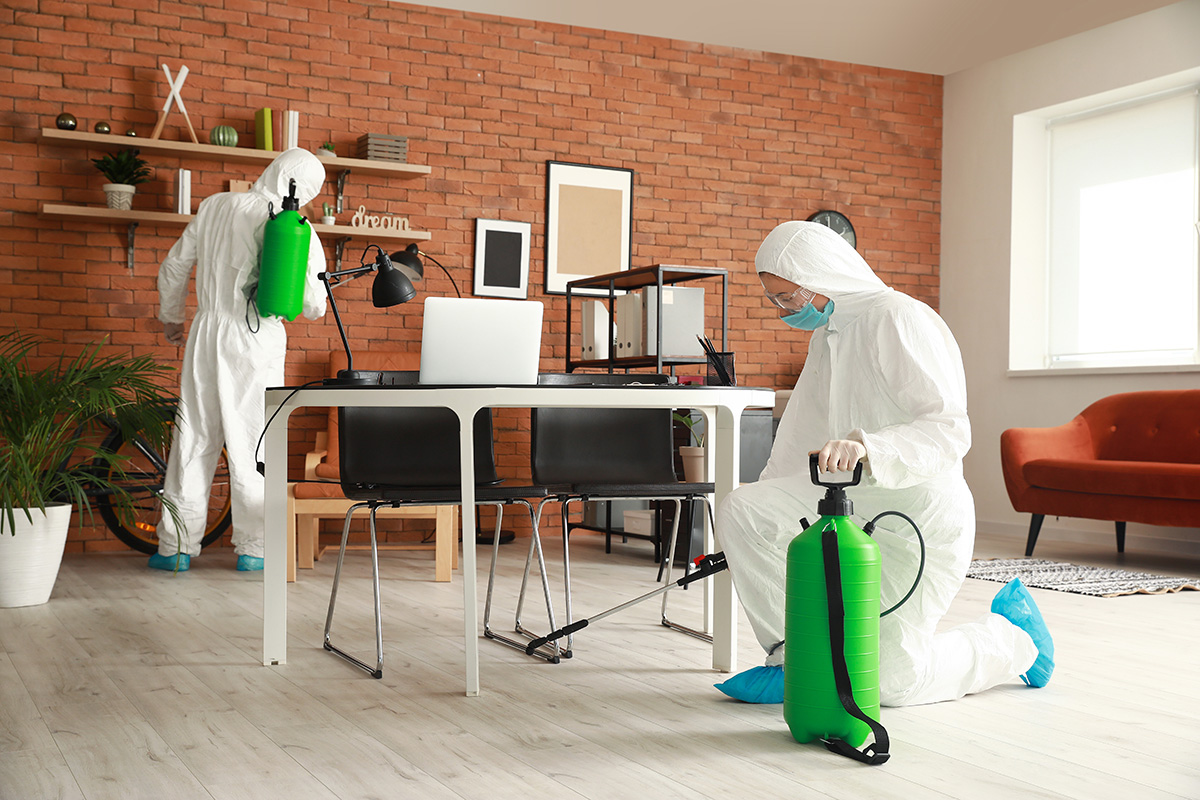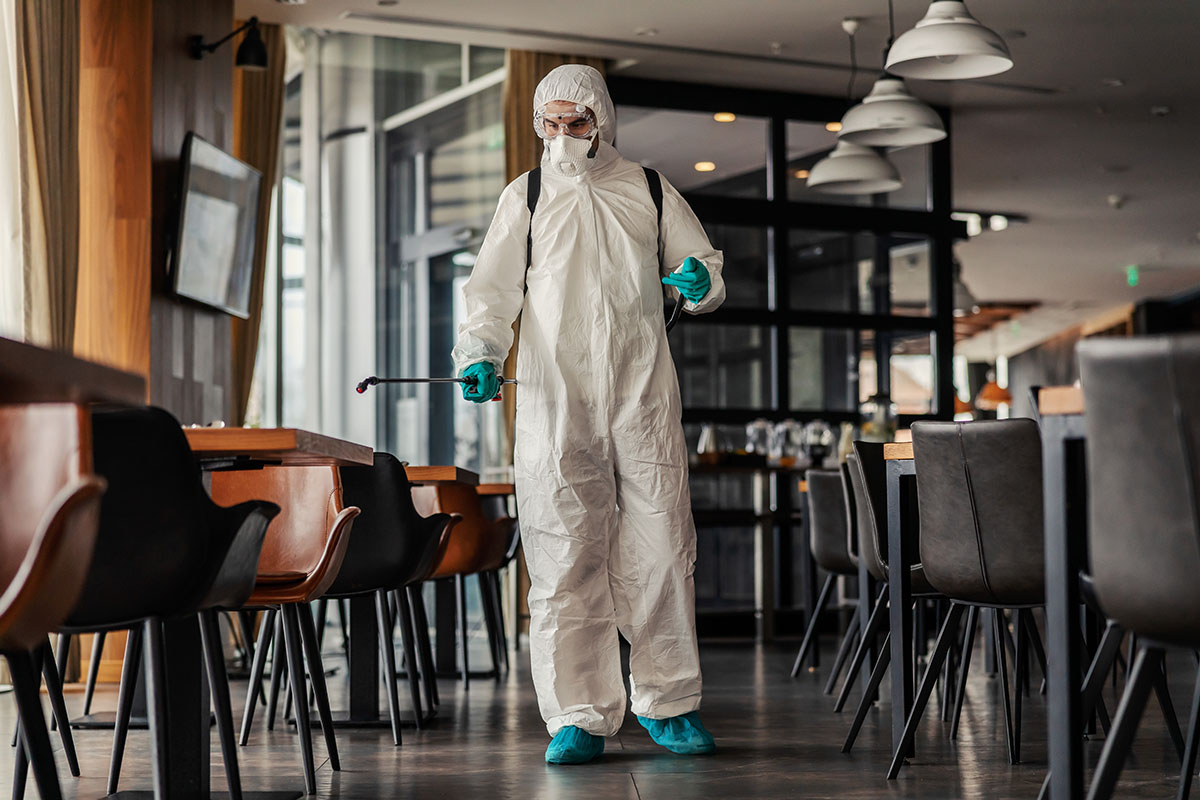London Warehouse Pest Control
A holistic approach to warehouse pest management

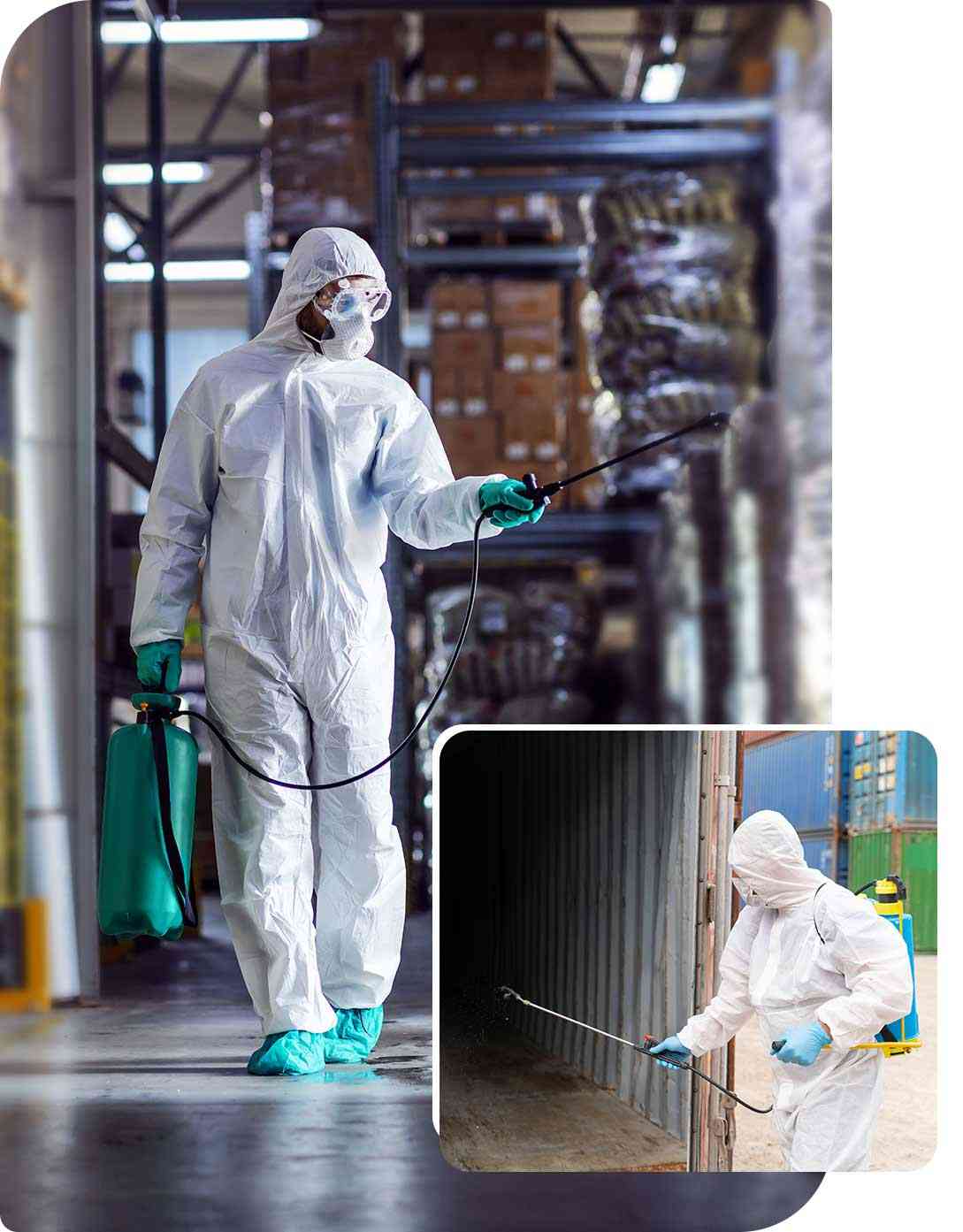
Pest control program in warehouses: Why it is so important?
It’s hard to control pests in a warehouse. Large warehouse buildings have dark corners, cracks, and crevices that pests can hide, nest, and reproduce. Rats and mice can cause significant damage to warehouses when they get infested. Without professional help, it’s almost impossible to secure every potential hiding place, nesting site and entryway from an infestation in such a large space.
They’ve even been known to gnaw through electrical wire, posing a fire hazard and causing further damage. Soft materials like paper and cardboard will also be chewed and shredded by them when building their nests, and food products will be especially vulnerable.
Several species of pests can be found in warehouses, but rats, mice, and cockroaches are the most common. There’s a serious health risk associated with any of these species. Rats carry several dangerous diseases, like salmonella, Weil’s disease, and the hantavirus. Mainly if your warehouse stores food products. Moreover, they can damage packaging and food items, causing stock loss. Food stored in a facility increases the likelihood of infestation, and the health risks to customers can lead to court action and fines.
It doesn’t matter if it’s wood, metal, or masonry. Rats chew through it all. This will result in damage to your building, machinery, and equipment. When you have a large infestation, you will have to repair the damage, which will cost you considerable money.
Infestations in warehouses can’t be ignored. Since it’s a safety issue, you’ll have to inform your customers. Unless you conduct regular pest inspections, you may not even realise that you have a pest problem and may transport live pests to your customers.





PROCESS
How warehouse pest control works
Contact us for a free no-obligation quote
What other London customers say about our warehouse pest control
The COSHH meaning and application in pest control
Control of Substances Hazardous to Health or COSHH regulations aim to establish control over hazardous substances based on a company’s specific use of materials. Providing a COSHH risk assessment, Fantastic Pest Control ensures that all necessary measures are taken into account to avoid and control exposure to substances that pose a health risk. You can be assured that all safety precautions are taken so we can guarantee our customers’ and employees’ health and safety during pest treatments.
To minimize exposure to health-hazard chemicals we:
- Conduct a COSHH risk assessment
- Carefully examine the property as part of the pest treatment
- Recommend the best course of action based on the type of infestation and its severity
- Make sure the baits with rodenticide can’t be reached by children or pets
- Provide non-toxic and eco-friendly pest control services like steam treatment or heat treatment for insects
- All services are provided by certified and trained experts
- Professionals wear protective clothing
- People or pets can come back to the treated areas only after the fumigants have dispersed
- Recommendations before and after the job are done
- Report with detailed information on the treatment carried out
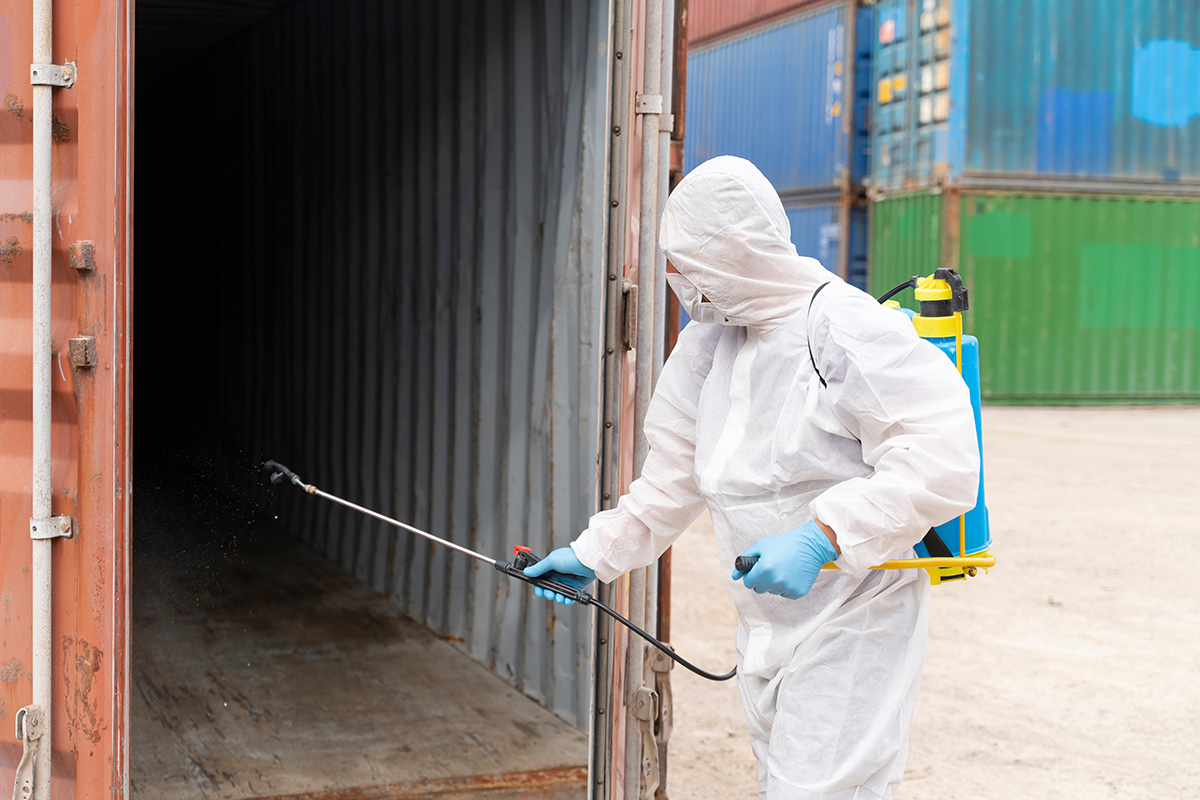
The RAMS meaning and its purpose in pest control
RAMS (Risk assessment method statements) is a set of documents that a company prepares after performing a risk assessment. As part of this systematic process, risks and hazards are identified, analyzed and controlled.
By conducting risk assessment, Fantastic Pest Control defines the necessary measures to provide a safe work environment, reduce risk and prevent incidents. Our pest control services are performed by trained and experienced specialists who follow all guidelines and do the job according to the right method statement. Considering all information gathered through the risk assessment enables us to provide high-quality treatments and people’s health and safety.
Types of warehouse pests
Rodents in warehouses – Most warehouses share several common characteristics – they store items on pallets, have one or more large doors, and encounter mice and rats on occasion. Usually, warehouses are built in industrial complexes surrounded by fields, woods, rivers, creeks, and railroad tracks. It’s for sure that mice will be outside the warehouse most of the year. Rodent infestations are almost guaranteed if you don’t apply proper warehouse pest control.
Ants in warehouses – Ant infestations in warehouses pose serious risks to stored goods, hygiene standards, and business operations. Warehouses provide ants with food, shelter, and undisturbed nesting areas, making them highly susceptible to infestations. Ants can contaminate food, packaging, and raw materials, leading to spoilage and compliance issues. Ant infestations in warehouses can result in failed health inspections, product recalls, and financial penalties.
Moths in warehouses – Pests can thrive in factories, warehouses, and depots. A wide variety of stored products are susceptible to moth infestations. A moth larva can cause considerable damage to stored goods. Textile and carpet businesses can struggle with moths. Goods exposed for too long can get contaminated or damaged. Warehouse moth control can be done by fumigation. We offer non-chemical treatments, specialised heat treatments, and traditional insecticidal treatments to stop warehouse moths.
Stored product pests in warehouses – Pests such as stored product insects (SPIs) are a major concern in the food industry. Whether flour weevils or biscuit beetles, these pests can ruin vast quantities of food if left uncontrolled. Your warehousing facility can suffer from costly downtime due to stored product insects. The biggest concern is that the insect’s cast skins or pupal casings can contaminate food. Your cereal doesn’t need that extra crunch!
Our London Warehouse Pest Control Specialists
FAQ Warehouse pest control
Q: How to get rid of rats in warehouse?
Q: What are the most common types of warehouse pests?
Q: Do warehouses have rats?
Q: How do you rodent proof a warehouse?
Q: How often should pest control be done at warehouse?
You might find this helpful
COVERAGE
Warehouse pest control in London and across the UK
